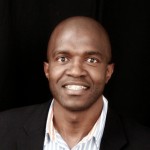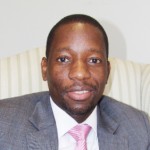

Follow us on:  
|

South African President Jacob Zuma in a televised State of the Nation address on Thursday night urged national unity on economic affairs, signalling that the government was open to ideas from various sectors in order to meet the 2030 deadline.
To counter the effect of trade with struggling markets – in Europe and the US – Zuma highlighted Pretoria’s strong multi-lateral relations with fellow BRICS countries in his speech as a means to move the country forward.
Analysts, economic experts, policy advisors had mixed reactions to the president’s speech.
The BRICS Post brings you exclusive reactions to Zuma’s speech:
Matthew Quigley, economist, TBP columnist
 South Africa is growing at about half the rate that it needs to be, so it was a positive sign that the economy featured so prominently in the president’s remarks. However, the speech lacked details.
South Africa is growing at about half the rate that it needs to be, so it was a positive sign that the economy featured so prominently in the president’s remarks. However, the speech lacked details.
The president began by reiterating the importance of the National Development Plan as government’s roadmap to growth and development, but provided no clarification on implementation or funding.
This raises the question of how exactly South Africa is going to create the millions of jobs it needs by 2030. Hopefully, finance minister Pravin Gordhan’s budget speech later this month will provide more details.
Catherine Grant, programme head of economic diplomacy at the South African Institute of International Affairs
 President Zuma addressed a somewhat distracted South African population last night in his state of the nation speech. He started and finished the lengthy presentation by reaffirming the commitment of government to the vision set out in the National Development Plan.
President Zuma addressed a somewhat distracted South African population last night in his state of the nation speech. He started and finished the lengthy presentation by reaffirming the commitment of government to the vision set out in the National Development Plan.
Unsurprisingly this was one of a number of echoes of policy decisions made at the ANC Conference held in Mangaung in December 2012. Among them was the categorical dismissal of the nationalisation debate and a strong defence of the supremacy of the constitution.
These are things investors want to hear. What might create some nervousness was confirmation of a study on the tax regime that will include evaluation of the policy on mining royalties and prioritisation of land reform which includes a move away from the willing buyer willing seller process and limitations on foreign land ownership.
While current hotspots in Africa got a cursory mention, solidarity with the people of Palestine was emphasised. An explicit link was made between South Africa’s participation in global coalitions like the BRICS and G20 with its responsibilities to “represent the aspirations of the people of Africa”.
Zuma reconfirmed the ongoing juggling act of South Africa’s foreign policy by reaffirming the partnership with countries of the North and explicitly acknowledging the importance of Europe to the economy. The question remains how Africa, BRICS and North-South relations will be managed in a mutually supportive fashion in 2013.
Mzukisi Qobo, deputy director at the centre for the study of governance innovation, University of Pretoria
 There is no denying the crisis of confidence and legitimacy that trails the Jacob Zuma government.
There is no denying the crisis of confidence and legitimacy that trails the Jacob Zuma government.
Zuma’s state of the nation address took place against a backdrop of a very low national mood induced by high levels of unemployment, rising acts of violent criminality, corruption and maladministration, and slow progress in service delivery.
Instead of grappling with the heart of South Africa’s crisis today, Zuma’s state of the nation address had a dry list of government’s commitments, some partially achieved, some vague and others yet to be executed.
Without showing any sense of responsibility, he laid blame for South Africa’s economic woes on the global recession, and singled out the eurozone crisis for weakening trading conditions, growth and exacerbating unemployment.
The speech carried no animating ideas, and was without a central theme that would act as a pivot to mobilise the energies of the nation towards a shared objective.
Khulekani Mathe, acting head of the National Planning Commission Secretariat
 The South African president in SONA yesterday has sent a very strong and unambiguous message about the centrality of the National Development Plan to government effort to fight poverty and inequality.
The South African president in SONA yesterday has sent a very strong and unambiguous message about the centrality of the National Development Plan to government effort to fight poverty and inequality.
He characterised it as the roadmap that will take the country to a future where everyone has a raft of public services that in the parlance of the NDP constitute a decent standard of living.
Specifically the speech sees the NDP as critical to putting the country on a better economic footing including making a quicker recovery from the effects of the global crisis of the past four years.
The president committed to continued engagement with the private sector, labour and other social partners to remove obstacles to growth. The report on the agreement reached by parties at the NEDLAC on youth employment incentives is a major breakthrough.
This was by all accounts a confidence building speech. Details on implementation will be provided in speeches by ministers in the course of the next few days and weeks.
Merle Holden, economist, emeritus professor in the school of economics and finance at the University of KwaZulu-Natal, Durban
 While most in South Africa expected more emphasis on the National Development Plan and the means of achieving its goals these were hardly given a nod.
While most in South Africa expected more emphasis on the National Development Plan and the means of achieving its goals these were hardly given a nod.
There was a failure to grasp the nettle to deal with failure in the public school system largely populated by black students and the crisis in the mining industry.
The hard question that needs answering is why South Africa, a mineral rich country, has failed to benefit from the commodity boom as have her neighbours to the north and failed to improve growth beyond the paltry less than three per cent to the required five per cent to reduce unemployment.
Instead a laundry list of public projects were detailed without which the country probably would have not grown at all.
Reena das Nair, principal economist in the policy and research division at the Competition Commission, South Africa
 The National Development Plan was the common thread that ran through this year’s SONA, although progress on Government’s R860 billion infrastructure spend clearly dominated.
The National Development Plan was the common thread that ran through this year’s SONA, although progress on Government’s R860 billion infrastructure spend clearly dominated.
Issues of corruption, tender irregularities and price fixing related to these infrastructure projects were emphasised with a commitment to crack down on such activities.
The recent tumult in the mining sector was somewhat downplayed while the nationalisation of mines debate was, once again, firmly debunked.
Elevating education to an essential service highlighted the increased focus government will have in this sector. Clarity that this did not take away teachers’ Constitutional right to strike, invoked positive reaction.
However, little specificity was given on the measures that would be put in place to improve education at different levels.
Unemployment was a focus area, with emphasis on youth unemployment and the role of public-private partnerships in addressing this crisis.
Law enforcement and the fight against crime achievements were highlighted, with a welcomed emphasis on crime against women and children, as well as violent protest actions.
The commitment to setting up priority courts to fast-track such cases is encouraging. Trade, health, and focus on the African continent were given scant attention.